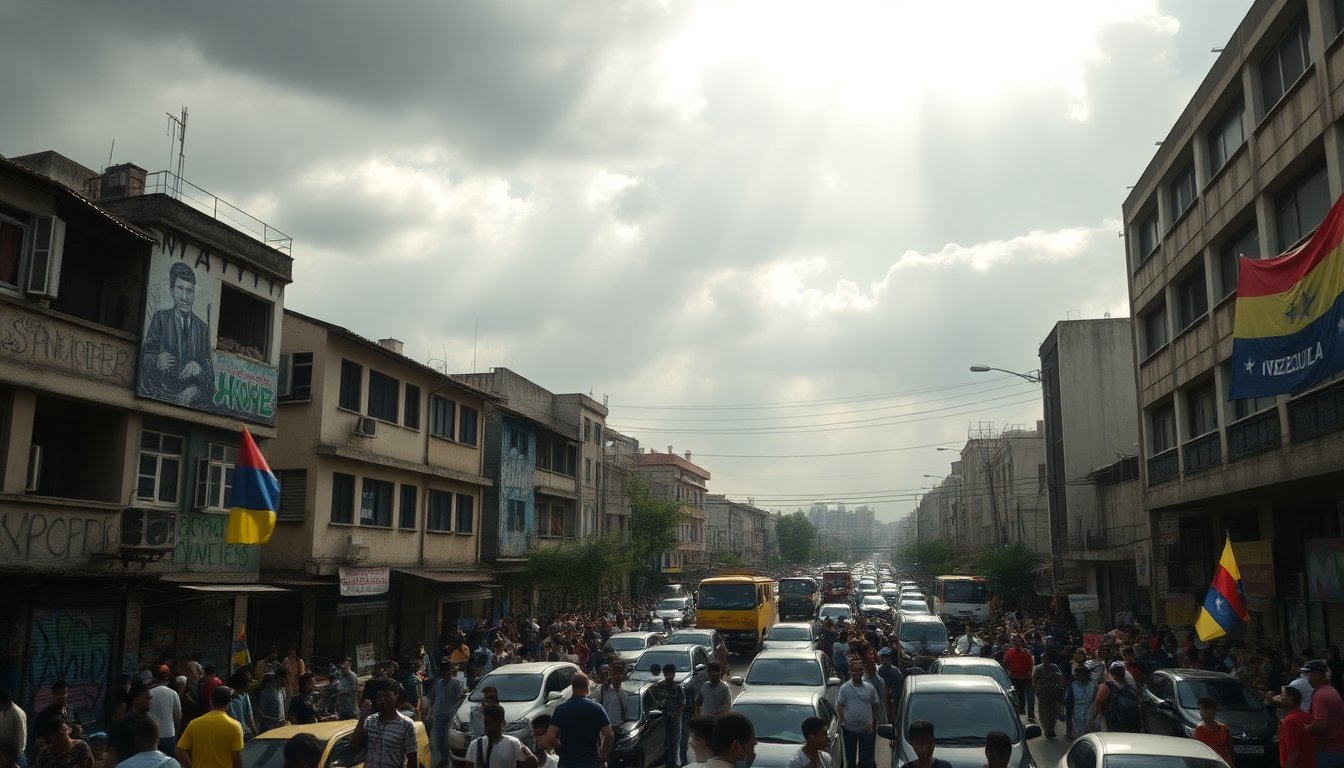Table of Contents
The political climate in Venezuela is marked by ongoing tension and uncertainty, particularly regarding the leadership of Nicolás Maduro. The U.S. government is considering renewed efforts to challenge Maduro’s authority, raising serious concerns about the potential consequences of these actions. Previous attempts to destabilize his regime have resulted in significant humanitarian crises, including a mass exodus of Venezuelans seeking refuge abroad. This article examines the implications of another U.S. intervention and its potential impact on the Venezuelan populace.
The historical context of U.S. interventions
U.S. involvement in Latin America has often led to unexpected outcomes. An earlier effort to remove Nicolás Maduro, initiated by the Trump administration, triggered a significant exodus of Venezuelans fleeing their country. They sought safety and stability in neighboring nations. This history of intervention prompts important questions about the effectiveness of these strategies and their enduring effects on the region.
The refugee crisis
The consequences of U.S. interventions often intensify existing crises. In Venezuela, ongoing political turmoil has led to a significant refugee crisis. Reports show that over seven million Venezuelans have fled the country, driven by economic collapse, political instability, and human rights violations under the Maduro regime. As the U.S. contemplates another effort to oust Maduro, it is essential to recognize the potential for further destabilization, which may force even more individuals to leave their homes.
Venezuela’s political landscape
Nicolás Maduro has held power since 2013, following the death of his predecessor, Hugo Chávez. His administration faces serious allegations, including corruption, human rights violations, and electoral fraud. These issues have sparked widespread unrest in Venezuela. Despite these challenges, Maduro retains control, largely thanks to support from the military and his political party.
The influence of international actors
International relations significantly impact the Venezuelan crisis. The United States has openly criticized Maduro’s regime, while other nations, particularly those with socialist leanings, have shown support for him. This geopolitical tug-of-war adds complexity to the situation, as countries align on opposing sides, creating a polarized environment that hinders productive dialogue and resolution.
The potential consequences of renewed U.S. efforts
The United States’ decision to intensify efforts against Nicolás Maduro could lead to increased unrest in Venezuela. Previous interventions have demonstrated that such actions often result in backlash, not only against the U.S. but also against local opposition groups. This could upset the already fragile balance of power, potentially resulting in violent confrontations and worsening living conditions for Venezuelans.
Additionally, the economic sanctions previously imposed by the U.S. have severely impacted the Venezuelan economy, deepening the ongoing crisis. Rather than fostering political change, these sanctions might inadvertently bolster Maduro’s standing by stirring nationalistic sentiments. Many Venezuelans may view foreign intervention as an affront to their sovereignty, further complicating the situation.
Humanitarian implications
The humanitarian aspect is critical. If the U.S. takes further actions against Nicolás Maduro, the likely outcome could be a worsening humanitarian crisis. Millions are already living in poverty and facing food shortages. Any escalation may further strain an already overwhelmed healthcare system, leading to increased suffering among civilians.
The possibility of another U.S. attempt to oust Maduro is fraught with challenges. Historical context indicates that such actions often result in greater instability and humanitarian crises. Rather than pursuing aggressive tactics, a more measured approach focusing on dialogue and support for the Venezuelan people may provide better long-term outcomes for all parties involved.


